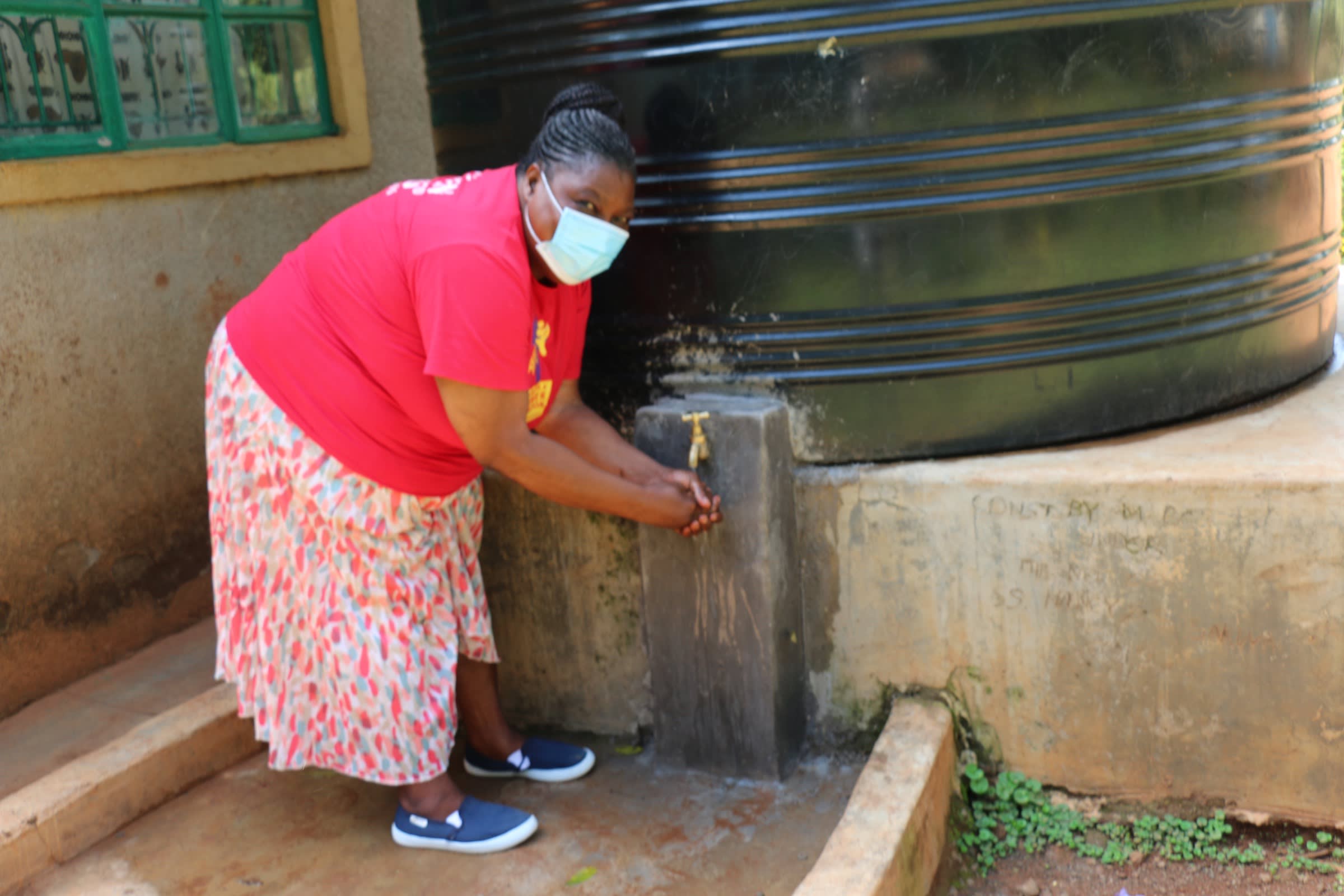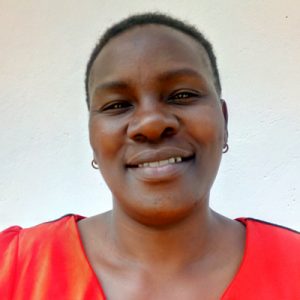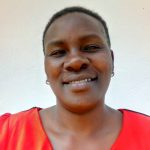Health centers need a steady supply of clean, safe water for treating patients and maintaining a sanitary environment. Unfortunately, in the dry season, this isn't the case at Eluche Health Center.
The Kenyan government has plans to expand this health facility to meet the growing health demands of the area, but won't provide the funding unless the Center can procure a reliable source of water.
The facility shares its small rainwater catchment tank with community members and a local church. When it rains, this isn't a problem. But the dry season causes significant trouble for the center and the surrounding community. Staff and patients' families are sent searching for water wherever it can be found. Most often, this is from a local water cart, whose water source has not been verified to be safe for human consumption.
"As the in-charge [nurse], when there is [a] lack of water, [I] am forced to buy [it], " said head nurse Nancy Kibiende, seen below at the rain tank. "We do not have a [budget] allocation for this. Imagine!"

Philip N., a 14-year-old student who happened to be an inpatient at the health center during our visit, explained what it's like to be a patient when the water has dried out. "I thirst for water so much, I just don’t know what to do," he said. "Especially after getting to the facility and I lack water to drink."
Staff told us that the reason they worry most about the lack of water is the expectant mothers who come there for birthing. Each birth requires a good deal of water, and the staff doesn't feel comfortable using the purchased water from the cart to clean the tired mothers and fragile newborns, but currently, they have no choice.
Everyone who works at the health center and everyone who depends on it for treatment is highly anticipating the implementation of the borehole well, and cannot wait for the project to be completed.
What We Can Do:
New Well
We conducted a hydrogeological survey and the results indicated the water table here is an ideal candidate for a borehole well. Due to a borehole well's unique ability to tap into a safe, year-round water column, it will be poised to serve all of the water needs for this clinic's needs, even through the dry season.
The clinic will help collect the needed construction materials such as sand, rocks, and water for mixing cement. They will also provide housing and meals for the work team, in addition to providing local laborers. We will complement their materials by providing an expert team of artisans and drilling professionals, tools, hardware, and hand-pump. Once finished, the clinic will use water from the well and staff for drinking, handwashing, cleaning, and much more.
The clinic and we strongly believe that all of these components will work together to make the clinic easier to clean, which will aid in treatment and unlock the opportunity for patients and staff alike to live better, healthier lives.
Handwashing Stations
We will install two new handwashing stations and ensure they are kept clean and in working condition. The clinic staff will fill the handwashing stations with water daily and make sure they are always supplied with a cleaning agent such as soap or ash.
Training on Health, Hygiene, COVID-19, and More
We will hold a one-day intensive training session. This training will cover a wide range of topics, including COVID-19 symptoms, transmission routes and prevention; personal and environmental hygiene; and the operation and maintenance of the borehole and handwashing stations. There will be a special emphasis on handwashing.
Our team of facilitators will use various methods to train, including participatory hygiene and sanitation transformation and asset-based community development. We will also lead lectures, group discussions and provide illustrative handouts to teach health topics and promote good hygiene practices, including handwashing and water treatment. We will then conduct a series of follow-up training before transitioning to our regularly scheduled support visits throughout the year.



 Rehabilitation Project
Rehabilitation Project




































